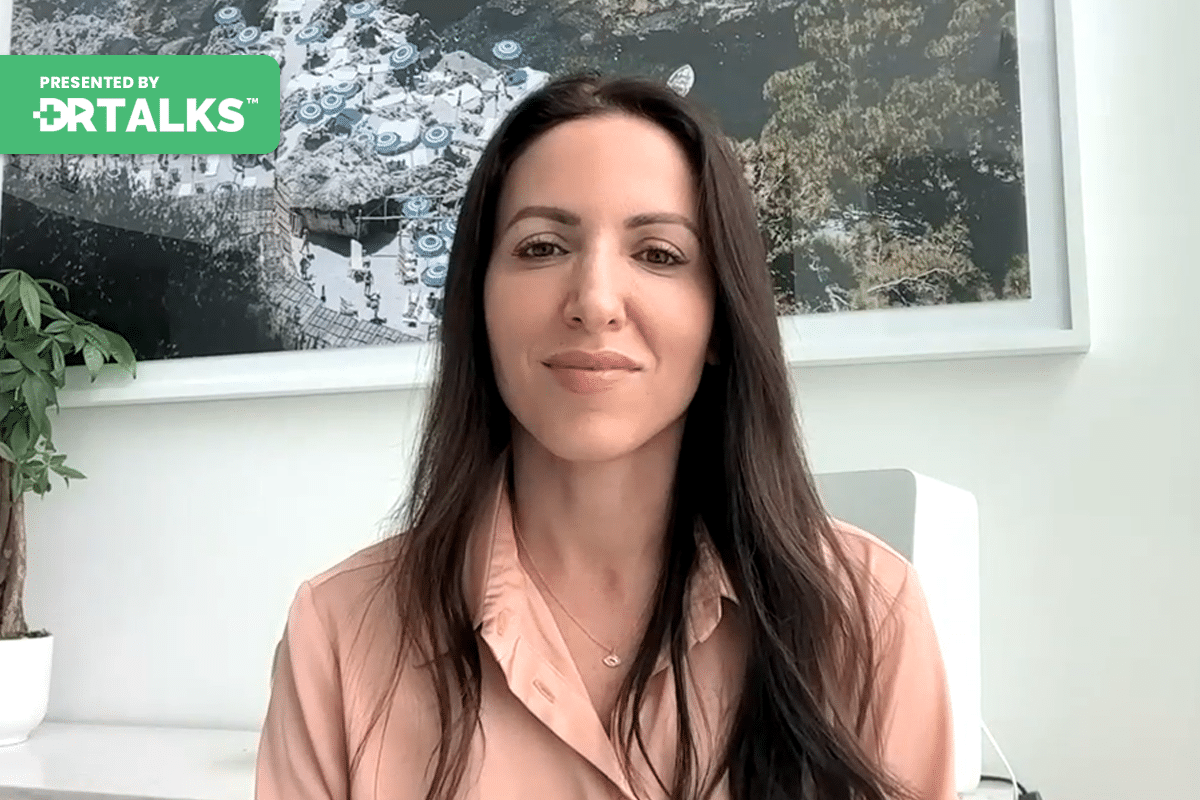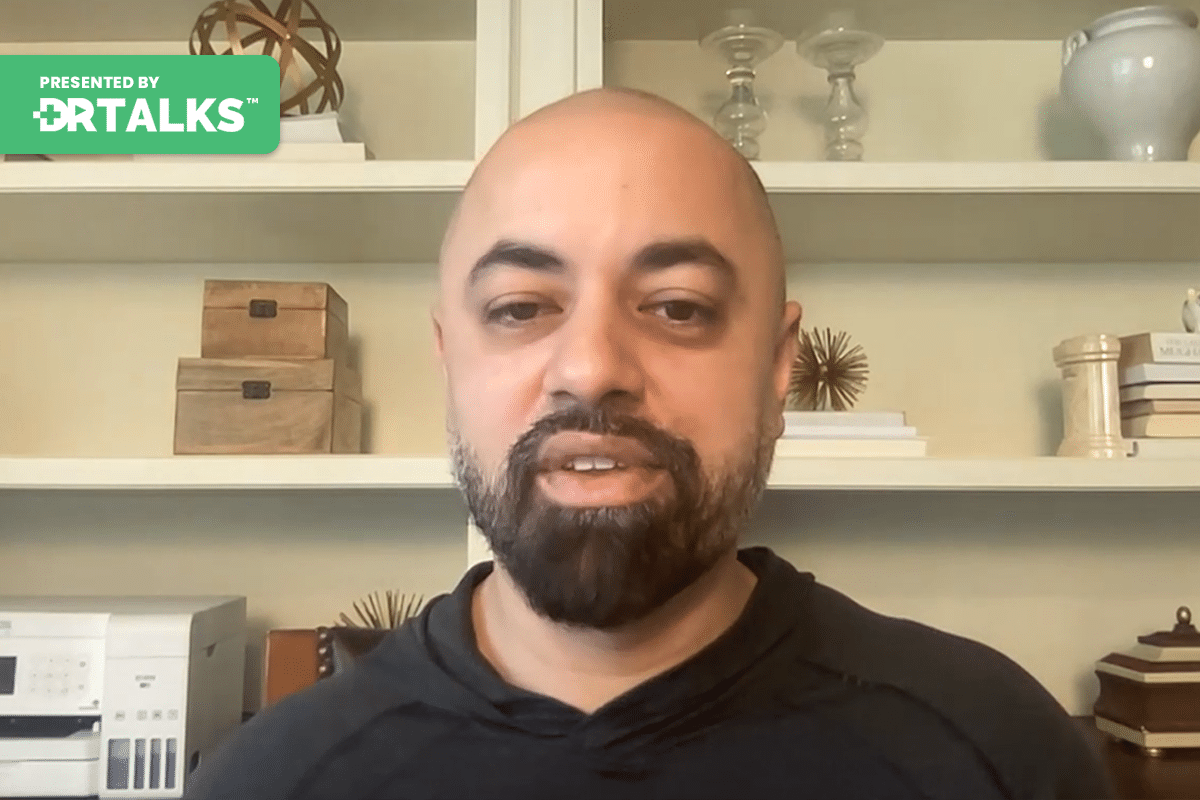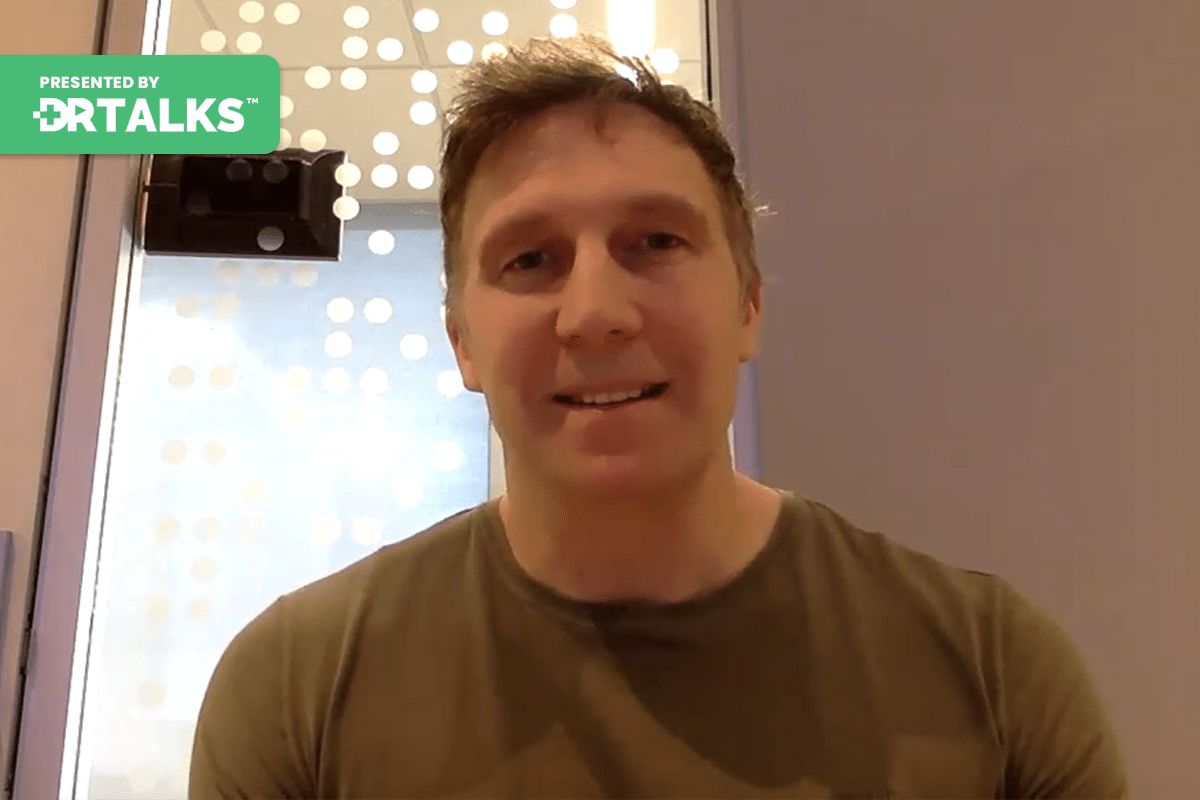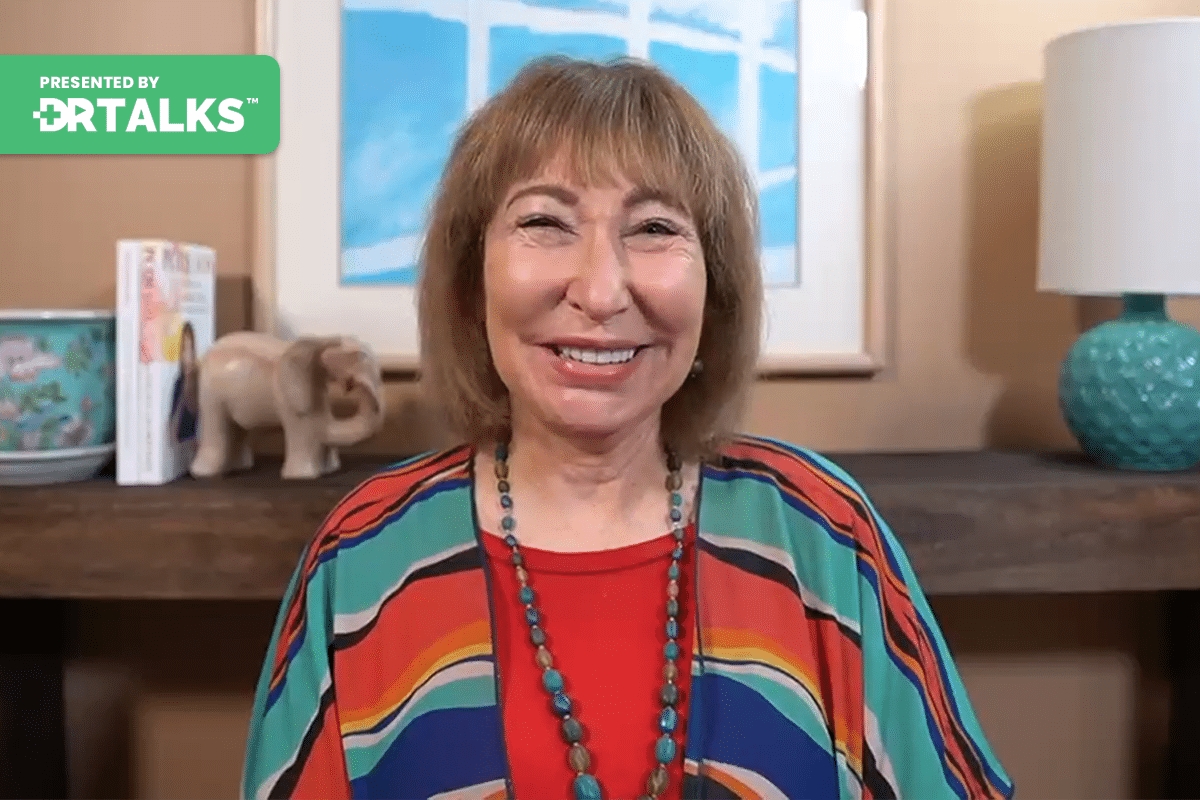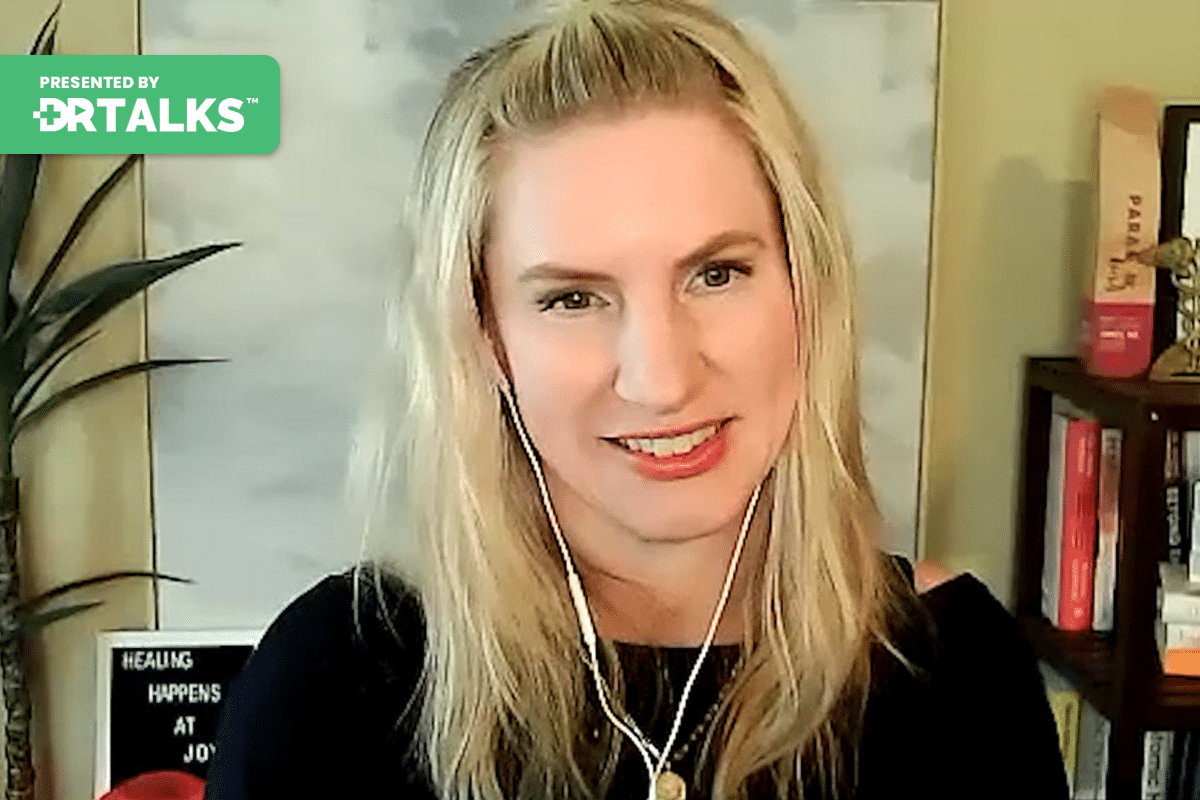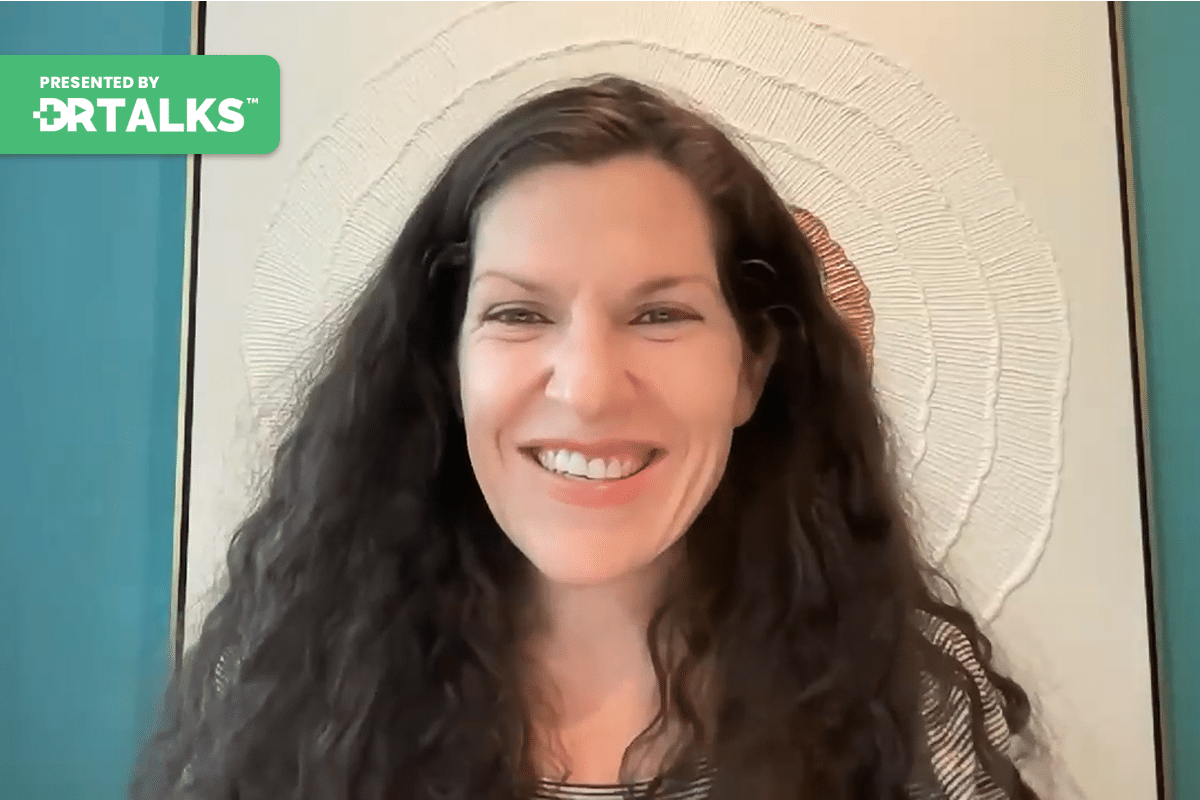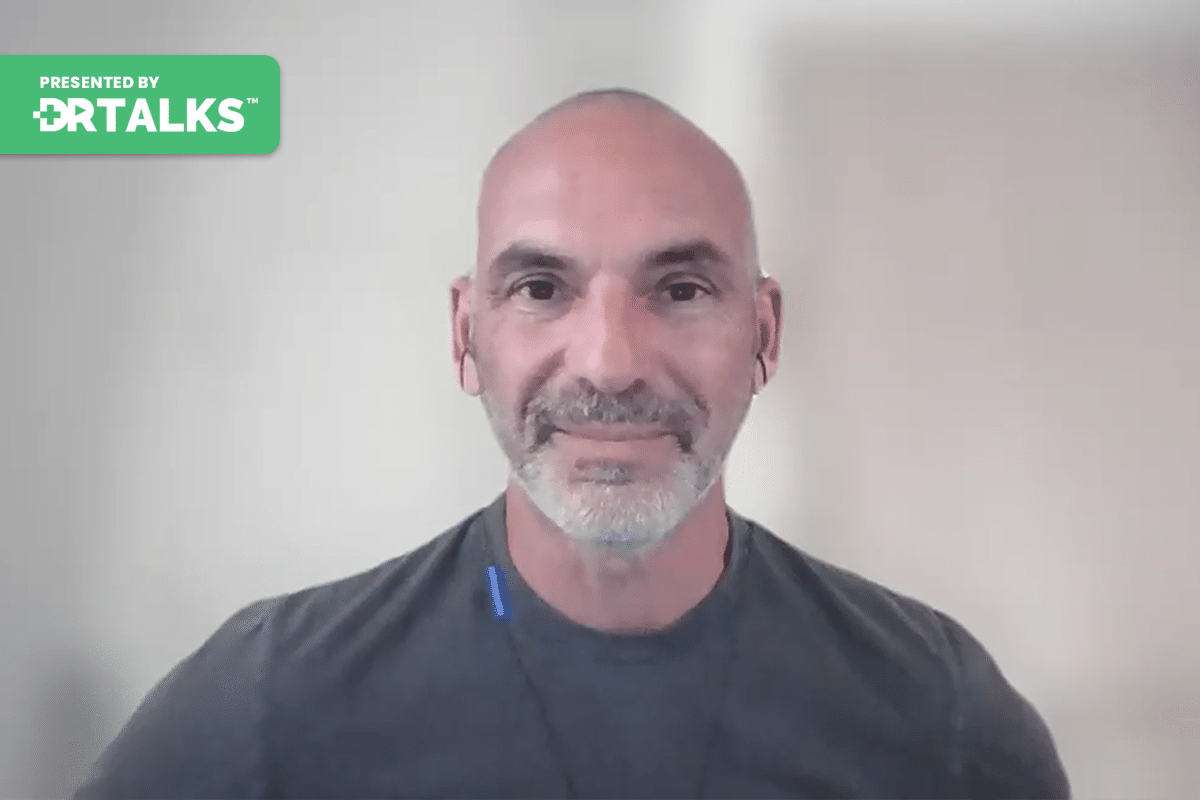Join the discussion below

Kashif Khan is the Chief Executive Officer and Founder of The DNA Company, where personalized medicine is being pioneered through unique insights into the human genome. With the largest study of its kind globally, The DNA Company has developed a functional approach to genomic interpretation overlaying environment, nutrition, and lifestyle... Read More
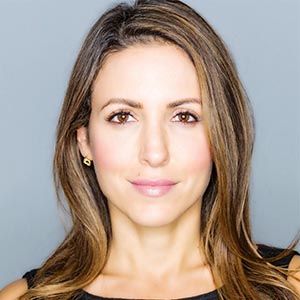
Bianca is a functional registered dietitian and natural food chef. She has a functional medicine practice in Miami Beach where she guides women through a three-month healing container addressing sleep, digestion, parasites, mold/metal detox, and hormones. She also cooks delicious food and believes there is a lot of value in... Read More
- Delve into riveting tales from clinics that shed light on the overlooked importance of parasites, and understand why they demand our attention for optimal health
- Get ahead of the curve by learning about emerging health trends that are making a real difference, and arm yourself with the knowledge needed to make informed decisions
- Gain insights into lab tests that truly work, enabling you to monitor and manage your health with precision and confidence
Kashif Khan
All right, everyone, welcome back. We are joined by Bianca Peyvan, who is sitting in Miami right now and decided to take time away from her beautiful Miami lifestyle and teach us a little bit. But thank you for joining us.
Bianca Peyvan, MS, RDN
Thank you for having me. It’s good to see you again after Austin.
Kashif Khan
Yeah, we actually met at a biohacking conference, which was cool. You guys, have you flew out there because this is not only your work, but also your lifestyle. And you know, everything about staying healthy is important to you. And I saw that in the way you eat and the way you sort of did everything, you know, which is cool. But you also do this for your patients. You know, you support patients through functional health journeys and get them going better. Yeah, we’ll dive into that today because there’s a lot that you do. But what I really like about what you do is your belief in sort of the ancestral diet and how we’re supposed to eat and all of us wrong. We already know that our food system is broken. That’s obvious to most people. What we don’t know is what is it supposed to be like? What is ancestral diet? What are we supposed to eat? And we start there.
Bianca Peyvan, MS, RDN
Yeah, let’s start there. So. So I’m from Iran and I did my thesis, my master’s nutrition thesis on the French Mediterranean paradox. When I was doing the research, I was looking at the blue zones and I was looking at like, what are people eating and what’s keeping them alive for so long? Because these centenarians, they’re not just like living to be 90, 100. They’re actually active and they’re, you know, they’re they’re hiking, they’re having sex, they’re drinking wine like they’re they’re living. And they were eating locally, which was really interesting to me. I was like, wow. So this woman in France lived to be 120 years old. She smoked a pack of cigarette a day, but she ate these lemons from her community. And perhaps this was part of what was safeguarding her from that toxin exposure. So it just drew me back to getting more connected to my roots, eating, learning how to cook Persian food. And we have so many great spices, herbs that are so protective, you know, like saffron, for example, barberry, just high polyphenol foods. And so it just got me thinking, like, I actually think this is the most protective way to eat for my, my, my genetics and my background. So that’s kind of my philosophy. I do believe all foods fit, but for a lot of people who maybe don’t come from, you know, Iran or maybe they’re just part German, part French, part African, you know, they’re mixed. It’s like, where do you start? And I think you have to maybe go back to your grandparents and even your great grandparents and just think about where did what did they eat, you know, most likely if it’s your great grandparents, they were eating from a farm, you know, and I think that’s another philosophy, as is the food that you’re eating whole. Did it somehow come from a farm? And I think that’s a good place to start.
Kashif Khan
Yeah, there’s a couple. So when you’re looking at ancestrally the way you describe, there’s a couple of things to think about. You mentioned local and then there’s local in terms of what our ancestors eat and how did that become our cultural food. But there’s also local in terms of like literally where are you in the world? And there’s this really cool study that I was just reading about where the frequency of water in the jurisdiction that it’s in is healthiest for the person that’s near the water, meaning that we all know that we it comes out of quantum theory, it comes down to frequency, right? That’s the particle that makes us up who we are. And same thing with the food and nutrition we take in. And so the food that grows at a local area is designed for the human in that area to thrive in that area. Right. And meanwhile, it’s like push over and you get sushi for breakfast and Thai food for lunch and you know, and it’s all that was imported. Yeah. So yeah. So that’s one. I’m sorry. Go ahead.
Bianca Peyvan, MS, RDN
Yeah, it was so funny because, you know, we went through so many different health trends and, you know, this low-carb or no-carb concept is always funny to me. It’s like, why would I tell someone who’s Asian not to eat rice? You know, that’s their indigenous food that their ancestors have been eating forever, that their bodies designed for it, you know, and not to say there can’t be any, you know, variation to that, but I think you got to think about what is it that your grandparents say?
Kashif Khan
Yeah. And then there’s the individual personalization, which we can use genetics for. You do a lot of testing. In fact, you do functional testing. We should dive into some of that because this is what a lot of people want to know more like I don’t feel right on to the doctor. He checked my cholesterol and said, go home. But there’s so much more to functional blood testing. Tell us about some of the tools you use.
Bianca Peyvan, MS, RDN
Well, first, I like to just start with blood work because I think there’s so much our basic blood work tells us that our doctors are not either trained or have the time to explain. So I look at blood work from a functional perspective, which means they have tighter ranges. They’re not based on these wide standard clinical ranges that are, you know, basically based on the data that this lab has. So I like to look at it from a title perspective because I’m looking for how to be preventative. How do we catch things like anemia that are coming? And I just like to first start with just blood sugar. So I liked the tests, not just glucose and A1C, but I like to test uric acid, I like to test insulin and I like to test LDH and just see where these are. These markers will tell me if somebody is a good candidate for fasting, if they have potentially chronic stress in their body that they’re fighting. And this will guide me into just helping them, you know, whether they need to eat more protein in their diet, let’s say they’re hypoglycemic. So that’s one place I like to start. Was just the blood work, for example.
Also, I like to look at liver and kidney function. Are there perhaps some like liver foods that I can suggest to help open drainage pathways for them? If you want to go deeper, you know, there’s this whole debate about whether food sensitivity tests are accurate or not, if they’re relevant or not. In my practice, they’ve been tremendous. Personally, they have impacted me because what they do is they test for proteins and depending on the permeability of your gut, can these food proteins go through that barrier and caused an immune response? And that’s what we’re checking. So a lot of times when I have people do foods that say be tested, it’s almost like what they need to know. Like, Okay, yeah, maybe I should not be eating dairy, maybe I should not be eating gluten-containing grains. Maybe these are things that don’t work for me and they have an opportunity to try that and see if they feel better. And I’ll tell you, most people come back and report higher energy levels, less brain fog. I can tell you a personal story. I used to drink espresso, a shot of espresso with a teaspoon of cane sugar. And I would drink that every morning, go to my office, and at 10 AM I would just hit a wall. I just feel so incredibly fatigued. And when I did my super sensitive test, it came back very high for cane sugar. And, you know, that’s not a typical food allergen by any means.
But once I eliminated that out, it was like, wow, that was what my body was fighting. That was what my body was interpreting as an intruder. There’s some foods, zoomers, that are a little bit more in-depth. They look at the whole every component, not just the proteins. And so they can tell you, you know, for example, there’s a wheat zoomer that I run in my practice that will tell you, are you just sensitive to wheat or is it also gluten-containing grains? And how sensitive are you and how, you know, how is your body reacting? Like some clients of mine, not many, I would say probably 10% are not sensitive to gluten-containing grains. And for them I say eat the best source, like get an important, get a sprouted, get an organic, you know, make sure it doesn’t develop into a food sensitivity.
Kashif Khan
So I heard you talking about, you know, what to remove and I know that you have this depth of knowledge on nutrition. So are you also using foods to heal? Like, are there certain foods you say that you need to eat this because it’s going to help ABC whatever.
Bianca Peyvan, MS, RDN
100%. So one of I, I grow my own broccoli seed sprouts but not everybody can do that broccoli seeds are you know that’s not too hard to do actually are really high in sulforaphane so it’s something you can even just simply buy at the grocery store. I also take this. This is called a rock shot. It’s basically have you see these? These are dehydrated. Yeah, this is dehydrated broccoli, seed sprouts. And you just take it as a shot. So I use this with my women who have estrogen dominance, who have difficulty metabolizing estrogen. So I use this. I use ground flax seeds, raw carrots. These are all really helpful in balancing out and basically getting rid of those unhealthy estrogens down those unhealthy pathways.
Kashif Khan
Because it’s coming in as a food. Is it more effective than taking the sulforaphane supplement? Because we see people doing that.
Bianca Peyvan, MS, RDN
Well, here’s the thing. I think that unless you’re someone who doesn’t mind taking a ton of supplements, I don’t like to put people on more than 5 to 8 supplements at a time and throwing in an extra supplement that they can get through food. I’d rather have them try doing that. So that’s another way.
Kashif Khan
Yeah. Because we often hear that you can’t eat yourself to help because the food is so bad. But you’re getting into the micro is a very specific things that actually are effective and have some potency to them. And then you mentioned something about supporting the liver through food. What would you do there?
Bianca Peyvan, MS, RDN
Yeah, so there’s, you know, think of liver. I think of the liver and gallbladder as one unit. And there are some liver foods that I really like, like beets, lemons, dandelion, anything that’s really sour. The liver likes this kind of food and I think just being in this toxic environment that we’re in, we need to support our livers every single day. So when people ask me, like, how often do you detox? Sort of like I think they detox every day. I’m eating fiber every single day to detox my body, right? Like I’m sweating every single day. I’m drinking clean water. I’m trying to breathe clean air, you know? You know, type of things that you could do. But yeah, I mean, you could also do like little tonics, too. Like you could do milk thistle with turmeric and you know, you could add cashew, homemade cashew milk or cinnamon, things like that. That would also be supportive as well.
Kashif Khan
Cashew milk supports the liver.
Bianca Peyvan, MS, RDN
Well, as a tonic as like so milk thistle does and different spices that you can add like cinnamon, nutmeg, clove, all these I love actually cooking with spices. I think this is a great way to also enhance the microbiome.
Kashif Khan
For sure. Yeah, that variety and what you’re describing. So that’s the thing is that you can create a regimen that is actually pleasurable and enjoyable and you’re taking this thing that you’re going to do anyway. You’re going to be eating right and you can take that thing that, you know, it can be enjoyable, but it can also be fulfilling and it also be giving you additional years and healthy years if you do it right.
Bianca Peyvan, MS, RDN
I know in my culture we have a strong tea culture and so it’s just a big ritual in our life and I think that’s another way that people can support their, you know, their soul, their mind, their livers through like detox teas and things like that as well. Just having that be a part of your daily ritual like you’re talking about.
Kashif Khan
And I know you said that in your practice you’re seeing that a lot of healing comes from dealing with parasites.
Bianca Peyvan, MS, RDN
So everybody has parasites. I think that’s something to kind of just put out there. They don’t have to be, you know, long tapeworms or say they could be protozoa and they could be microscopic, you know, yesterday I went on a boat in the bay here in Miami and I swam in the water. And I was just thinking about, you know, the different parasites that probably just transdermal my skin, you know, and this is just this is just a part of this is just a part of our day to day life. We get exposed. And I have clients who have pets. I have clients who love sushi and eat it pretty often, who like their meats rare or medium rare. And this is where these small parasites can get into our system. Also, we track them in our homes. You know, people who do not leave their shoes at the door are tracking and parasites. We’re taking dogs out for walks in the rain to a dog park. They’re tracking in, you know, different parasites coming in. So this is how we’re getting constantly exposed. So I do like to introduce parasite cleansing at least annually for people, but two or three times a year is pretty effective. When I did my own personal parasite work, I rotated different types of herbs and I did parasite work for about five months, and I continued to pass them during those five months, which was kind of wild.
Kashif Khan
So you’re not saying that we need to test and check with the problem. You’re saying everybody needs to be doing this regularly.
Bianca Peyvan, MS, RDN
So that’s about testing and checking. So what I’ve discovered in my practice is that these are not going to come up on a stool test unless you have so many of them that they can finally be detected by the immune system. Because parasites are really smart, they know how to build biofilms and hide. So most people don’t know. One of the some blood markers I look for are eosinophils, basophils, monocytes. If I see those slightly elevated to elevated, I can be pretty sure that you have enough parasites that are being detected. And the thing about parasites is, you know, they hold infections, you know, they hold viruses, they hold Lyme bacteria so they can infect you. And people are not aware of that. You know, people think they caught maybe Lyme from a tick or maybe they got Epstein Marks, they had mono, but it could be that the parasite living inside you is actually doing that transmission, which is crazy. So reducing your parasitic load is really one of the first or second steps into really getting well because they’re holding their weight and toxins, you know, things like heavy metals and molds. So by getting rid of them, we’re actually improving our health.
Kashif Khan
What does that protocol look like? What are you doing when somebody when you’re supporting them?
Bianca Peyvan, MS, RDN
So you can’t just parasite cleanse someone because they will feel really bad. So first you have to just check and see, are they pooping? Are they sweating? You know, do they have brain fog? How does their kidney and liver look on the blood work? If these drainage pathways are blocked, it’s not a good time to do any kind of parasite work because I mean, I know personally I’ve stopped working with practitioners who didn’t make who made this mistake with me. And that’s why I don’t make this mistake with others. I want to make sure that there were opening drainage first so that that can look like supplementation, that can look like sauna, castor oil packs, lymphatic massage, chiropractic care. You know, there’s so many things involved in opening these different drainage pathways first before we get into parasite work. And then after that, it’s supplements. It’s reducing the repeat insult, you know, like don’t go eat sushi when you’re doing a parasite. So this is like, silly.
Kashif Khan
So yeah. And how do you know it’s working?
Bianca Peyvan, MS, RDN
Like what the toilet reveals? Yeah. Yeah. So one of the things I like to add in to the protocol is a coffee enema. I don’t know if you’ve ever done one of those, so I find the best results come with doing a coffee enema. That’s when people really start to see things. Also, I have a protocol that I do with my clients on the day of the full moon where they fast most of the day and continue to take antiparasitic every hour. And this causes more of the parasites to come out looking for food. And then that’s when you just kind of bomb them and kill them, and then you finish it off with colon hydrotherapy. And then that’s when people start seeing the long lines come out.
Kashif Khan
With the long worms.
Bianca Peyvan, MS, RDN
Oh, yeah. I mean, my clients send me pictures on the regular of some of the gnarliest things. And parasites don’t just come out of your bum, they can also come out during menstruation as well. So you can pass. Yeah. Because, yeah, because you have so many organs, right? Like they could be stuck in the bladder for example, causing irritation. So they’re in the brain, they’re in the lungs, they’re in the heart. They’re not just in the gut. They pass through that, through this permeability in the gut to these other organs. And then they come back for food. So they’re always replicating. So it’s not like one and done one full moon parasite cleanse and we’re finished.
Kashif Khan
I don’t think I’ve ever felt this dirty before.
Bianca Peyvan, MS, RDN
It’s, you know, in my practice I see so many people with digestive issues, like so many. I mean, it’s just like an epidemic and we do some parasite cleansing and like, they’re like, wow, I was really bloated before, and now I’m not bloated anymore, you know? So we were able to kind of do some scrubbing and cleaning and get rid of things. Like, I think some parasites are good, you know, like there’s some symbiotic relationship we have with them. But I think what they become too, be too much or too many or too big, that. Yeah, that’s when they become a real parasite.
Kashif Khan
Yeah. I mean, we see this a lot where people think that they’re overweight, but they just their gut is bloated and it’s just it’s being forced out and they’re like, I’m doing everything right. I eat right, I exercise. Yeah. Fitness-wise, you’re there. It’s more of a gut issue and that’s your bloating. And this is one big thing that we see was also.
Bianca Peyvan, MS, RDN
Yeah. And that and I’ll just piggyback off that. It’s probably a lot of toxins, which is why the parasites are there. They’re there to do the cleanup, you know. So that’s why most people ever find out they have a parasite, because they went to Costa Rica and had diarrhea. Like they don’t, they don’t just like, assume they have parasites. But now I’m just I find a lot of these functional tests are getting more and more sensitive. They’re coming up on my stool tests now than they were before, which is really cool. And it’s a nice way to show a client that they’re there and, you know, to what degree they’re there.
Kashif Khan
Yeah. Especially someone that doesn’t have a quote-unquote problem. Like, I feel fine. I don’t believe you. I don’t have parasites. There’s nothing wrong with me. You know, it’s good to be able to test and show because it may be not symptomatic, but who knows all that? Anything that talks an inflammatory nature and a trickle effect, it takes a while sometimes for it to translate into a symptomatic issue. Right. But that’s too late. You know what you’re saying is like, why wait for that? Why or why don’t we just maintain this thing that we walk around in and we know with, right? Everybody do that. So that’s also bring that into the fold. And that’s another problem to deal with, right?
Bianca Peyvan, MS, RDN
Yeah, definitely.
Kashif Khan
And you do you have a unique story because I mean, you do all this great work to, you know, not only help your patients, but also yourself, but you also had to make a big choice recently where, you know, you you were suffering from what could have been, you know, as an autoimmune condition, all these labels that you put on this feeling. But more, more and more often were finding that breast implants are making women sick. And you decided to take them out? You got to. Excellent. Yeah. Why don’t you come to that conclusion?
Bianca Peyvan, MS, RDN
Oh, I did not want to do this. I was happy. I didn’t think I had any symptoms. I had mine for 21 years. I had no pain, you know, no rupture, no issues. And I just really did not want to be inconvenienced and then removed. But I was like, you know, I’m taking so many supplements, I’m biohacking. I’m just not optimal, you know, what is what is going on? So I started testing myself. So I did a DUTCH test a few years back and a Dutch test, you know, are you familiar with the DUTCH? Get some hormonal tests. And one of the things you do when taking a DUTCH test is you test your cortisol levels at four different times and your cortisol supposed to start out high and it’s supposed to gradually drop down and help you fall asleep. Well, mine was flat. It was like it was like low in the morning and low in the evening. So my body didn’t know it was like day or nighttime. And I’m like, Well, this is weird. Why would my cortisol be so flat? And why would my testosterone be so flat?
You know, those are both coming from the adrenals. So that’s like the first clue. The second clue was my white blood cells started to go down and I’m like, okay, why am I showing like I have a chronic infection in my body, you know? And that was another clue. The other clue, I finally did a toxin burden test, which is a urine test that looks at your heavy metals, environmental toxins and mold. So I expected mine would come back really clean and I’d love, oh, my gosh, like, why do I have black mold? Why do I have ten and platinum in the red? Why do I have plastic phthalates? Why do I have these chemicals in such high levels like I’m supposed to be the model of health and nutrition here? And so I had a colleague muscle test, me and I because I just wanted to know, like, are these problematic for me, you know, and do I need to take them out? And he told me six out of ten, you know, and I was like, I just need to know another test I did with a micronutrient test, which looks at your levels of vitamins and minerals, but also in the red or white blood cells. So it looks at your storage for all my storage forms of nutrients were below average, which is in to indicate some type of life event, like some trauma, something happened, some stressor that would deplete you, right? So toxins deplete nutrients. And so that’s when I started thinking this might be my root cause, this might be what I’m dealing with, like the brain fog or resistant weight loss, hair loss, which for some of my symptoms, a lot of them were neurological, I would say just having a difficulty time focusing and getting things done, which could be genetic too. I know.
So anyway, so I just decided to take them out. And the, the funny part of this story is my, my surgeon gave me my implants and we’re looking at them. There’s two floaters in each of their sailing implants, and I wanted to get them tested. I’m like, I want to know what is in here. So I tested the liquid inside in a petri dish. Lit up, lit up like a Christmas tree with different colors. So the mold present and this implant had a microscopic tear and was starting to leak. So that’s how I even got the idea to test the liquid. I was like, Oh, well, it’s leaking. Let me test it. I also sent it in to a colleague to do bio-resonance testing. Came back positive for black mold, phthalates, tin and platinum, which is used in the manufacturing of implants. So I’m like, Wow. And I think a lot of people probably expect, you know, you get these implants out and you’re like, you’re a new woman. You feel amazing. And I actually have not been feeling amazing. I’m dealing with, you know, some fatigue for sure. I’ve been waking up with a mild headache. I know my body is detoxing this stuff now and it’s like, well, it probably was just too busy trying to manage a repeat insult every day. But now that it’s gone, I’m able to now detoxify my body. So I’m currently doing a heavy metal detox and I am looking forward to retesting all these and I’ll share with you when I get my results because I really want to see what kind of an impact these were making on me.
Kashif Khan
And how long do you think you need to spend on this sort of detox protocol before do so?
Bianca Peyvan, MS, RDN
My plan is to retest after six months, so I’m going to be doing sauna, binder’s lymph work, really trying to just focus on opening my drainage pathways and eating those liver foods that are know, cleaning up my diet and just seeing, seeing how much of this I can get out. It’s pretty awesome when you do these tests because you get a starting point and you get to retest people after six months or a year and see the progress you made. It’s so exciting to see things like, you know, black mold and atrazine and heavy metals like reduce, you know, over 50% and a period of six months. Just if you’re consistent with your work.
Kashif Khan
The black mold is scary, like to think that internally you’re developing this stuff. You know, that is a big red flag, you know, and there’s so many women that, you know, it’s almost a blessing that it made you feel bad. So you knew there’s some women that, like you said, genetically do a really good job of detox are really good job of methylation and fighting the inflammation. It doesn’t mean the insults are there. Yeah. You’re just going to take you longer, which is almost more problematic because you’re not going to react until you actually have the disease. Right. Because that’s what’s going to happen. That chronic inflammation drip, you keep fighting and fighting and fighting at a certain age. Mitochondria stop fighting. Inflammation gets too much. And then instead of fighting fatigue, you’re fighting something much worse. Yeah. So no symptom doesn’t mean no problem, right? I still go get tested. Yep.
Bianca Peyvan, MS, RDN
Yeah, yeah. A lot of people I think are on the fence because they feel good and they’re like, Oh, but I thought, I’m supposed to replace them every ten years. I mean, there’s this, I guess, misconception that they have like a ten-year warranty. I mean, that’s what my doctor sold me a ten-year warranty when I got them. But he also told me he just took some out that were 30 years old and they were in great shape. So, you know, that informed consent was not there. And the black box warning was there back then. So they didn’t have to have those conversations. But it’s kind of wild. It’s kind of wild. I mean, like I’m waiting to get back that mold test for my petri dish. And if it lines up with, you know, the mold that I had in my tox test.
Kashif Khan
Yeah, that’s crazy.
Bianca Peyvan, MS, RDN
So crazy.
Kashif Khan
Crazy. Yeah. Yeah. So then so you’re going to six months down the road, you’re going to feel better. Both fingers and toes are crossed. Right. And then what would your recommendation be? Are you a proponent for like nobody should get implants or is there a certain person for which.
Bianca Peyvan, MS, RDN
Okay, look, I mean, I got my implants when I was 21 and I enjoyed them and they served their purpose. You know, I just think it maybe the world that we lived in 20 years ago was less toxic. I just it’s all about it’s an individual choice. Like, how toxic are you to begin with? How are you to begin with? Is this an added burden to your toxic bucket? I don’t know. That’s such a personal choice. But I’m I’m I’ve put it now as a question in my intake forms. I want to know who’s got it, who has implants and how long they’ve had them. Because they’re dealing with inflammation, they’re dealing with resistant weight loss, they’re dealing with fatigue and weight loss. But it’s this constant, you know, toxic insult it’s causing.
Kashif Khan
And that concept of total load. People have to take note of exactly what you said, that forget about grandma and grandpa, even your own lifetime. The world has changed. But the toxic burden we have today versus when you were younger is not the same as potentially different. The chemicals that are being used, the freedom of which they’re being used.
Bianca Peyvan, MS, RDN
Right.
Kashif Khan
Answers to everything. You know, the food just go into any big box, grocery store, walk up and down the aisles. And what percentage of that store would you actually recommend? A tiny fraction. And that’s the reality of where we’re at. So that total toxic load is much greater than it used to be. So when your mom says, hey, I never had a problem, she didn’t live today, you know, you know, the total everything you have to deal with. So think about that. And that’s where, you know, detox regimens and parasite cleansing and all this stuff that wasn’t regular maintenance now needs to be.
Bianca Peyvan, MS, RDN
Yeah.
Kashif Khan
So yeah.
Bianca Peyvan, MS, RDN
It’s funny, like you’re saying all this and I’m thinking about like, yeah, they didn’t have to think about their water probably they didn’t have to think of chemtrails. They didn’t have to think about, you know, pesticides, herbicides that are sprayed everywhere without our consent. Yeah.
Kashif Khan
So where does somebody start when they’re sick? Somebody listening to this conversation, and I think I got to do something. This is pretty scary. Is it like starting with working with the nutritionist like yourself is going to a functional medicine? Is it going to you’re an MD and asking for a bunch of tests like where to somebody?
Bianca Peyvan, MS, RDN
Well, I went to my MD for years and told her I had constipation and brain fog and an image as she just like had no solution for me except drugs and drugs that didn’t really work. And, you know, that’s what’s so frustrating. And then they don’t know how to read labs. So you ask for certain what work? I have to fight for a full thyroid panel. I mean, you’re not going to get it. You’re going to be charged something from your insurance bag. So you have to go find somebody, you know, who is working in the functional space, whether it’s a dietician or a naturopath or a doctor, and try to find somebody there who’s looking at root cause. Right. So, you know, you don’t necessarily want somebody who’s going to just give you more supplements for your situation, but also wants to work with you holistically, like wants to look at how are you, how are your thoughts, you know, how is your anxiety know? Are you having fun? How’s your sleep? You know, the first thing I fix with anybody is sleep and digestion. We don’t even get to weight loss until we address those two things, you know, and they get so much our way just from fixing those two things that it just makes weight loss so much easier. So where do you start? Yeah, just try to try to find someone that resonates with you. Try to find somebody who has their own story, who’s had their own success story, and who you resonate with. But it’s not easy. I mean, you need to call and have some discovery calls and make sure that you know what their program looks like.
Kashif Khan
I think the last thing you said is key. The best functional medicine practitioners we see are people that got there because they had to solve their own problem because it’s very hard for someone to not, to be able to think the way you need them to think. You know, it’s usually when they came out of the trenches themselves and they realized how the body actually works and how to treat it and that’s from their own healing journey. Yeah, that’s key. And you’ll find that especially in the functional medicine space, that’s why people go that they’re either disappointed by what they do in allopathic health care. Yeah. And now they don’t want to do it.
Bianca Peyvan, MS, RDN
Yeah, they’re over it. They’re like me, I can’t even deal with, I don’t even have a doctor anymore. I just use my insurance for emergency medicine, you know? And I think that is the future. I mean, at least in these more progressive studies, you know.
Kashif Khan
For sure. And so when somebody gets going, where do you say what would you say are like the foundational tests that somebody has to do to understand themselves?
Bianca Peyvan, MS, RDN
That’s a good question. So I like to always start with science symptoms and just see, you know, what are you dealing with? Like what kind of symptoms do you have? And a stool test is always a really fun and interesting test because it shows you is your is your diet diverse enough for one, it shows you how is your digestive sufficiency? Are you actually digesting food? Are you absorbing your food or not? You know, I mean, I like this saying it’s not what you eat. It’s you are what you digest. Right. A lot of people have really low pancreatic sufficiency. They don’t have enough stomach enzymes or stomach acids. And it’s sometimes because they’re drinking like alkaline water, you know. So I like to find out, do we have a digestive issue? Because sometimes that is the root of the rest of it. There’s also a lot of pathogens that will slow the motility of the gut. So constipation sometimes is related to different pathogens that will literally slow down ending. So we want to address those and kill those. So stool tests would be number one, probably after that would be a toxin burden test because I think that’s so eye-opening for people just to see where they land.
Because what’s good about doing a toxin burden test without provocation is you find out if the current environment that you work or live in is causing any kind of stress or causing these markers to be so out of range. If you provoke by doing things like sauna, binders, massage before doing one of these tests, you’re actually mobilizing all these toxins from the tissues. So these could be plastics exposure that you’re recirculating. So it’s like kind of like kicking up dust, right? So I always like to give people the option of doing it however they want to do it. You know, I actually tested someone with a surrogate recently. Turned out she had black mold exposure from where she was working. So that helped my client make a better, more informed decision for who is good at birth her child. Yeah. So and then the other thing I like to test for, for women who have symptoms, who are dealing with difficult periods, who have fibroids, is to do a dodge test because it does tell you so much more than just about the story of your hormones. And I think people don’t realize, like there is, you know, a hierarchy and how you address for both. And so you don’t just go like band-Aid, the hormone that’s low, you know, there is a chain of command. So that’s how I that’s pretty much how I like to run people through is is stool testing, toxin testing and hormone testing as a good foundation to find out where you are.
Kashif Khan
That actually sounds perfect because that’s the baseline especially when it comes to women’s health, which is needs a lot more help. Right here and you’re probably seeing that. So yeah, that’s an amazing baseline. And then when you talked about when people first come see you, one of the first things the came to see, and you know, most people are like, okay, please tell me how you do that because I can’t sleep.
Bianca Peyvan, MS, RDN
So yeah, so I start with light, sound and temperature because those are the things that interrupt sleep. So are you thought when you sleep, do you have weird lights turning on in your house? Like is the cat walking over your computer and the monitor turns on, do you know, like we have these annoying small lights that turn on. So I’m constantly saying Google turn off all the lights, you know, so these think these little things can wake you up and interrupt your sleep. Sometimes it’s your partner that is interrupting your sleep and you need to sleep in a different room than your partner. And that’s okay, you know, also temperature. So a lot of people love like an eight sleep or an ooler or sleeping with the AC at 66 degrees. So those are all just like things you can do that are baseline if you want it up your sleep, if you want to improve your sleep. I’m a big fan of liposomal melatonin and I like to get into higher doses with this. I don’t like to start people off with a high dose. We literally start with one milligram and work up to like 20. So we start slow because melatonin is also a really powerful antioxidant. It has the ability to help mobilize heavy metals outside the brain. So it’s a really powerful tool. And what I track and I have my clients track their sleep, their deep sleep usually doubles with like this all my melatonin. So that’s a big fat I’m a big fan of that product.
Kashif Khan
What time do you take it?
Bianca Peyvan, MS, RDN
Right at bedtime, because this liposomal, it works so instantly. And then I like people to have different doses. So like people who are waking up, they can do a 1 milligram dose and go back to sleep. But, you know, I like to ask like, well, what time are you waking up? Why are you waking up? Or you’re waking up to pee? So, you know, could this be like a kidney mold issue that’s causing you to wake up and have to pee? I think a lot of people who wake up to pee just think it’s normal. They just accept it as like a part of their life. And I have to tell them, no, this is like a low quality of life thing. You should not be waking up to pee, you know, two or three times at night. That’s not ideal. That’s for.
Kashif Khan
People age. We see it more and more and they just think it’s a part of aging, but that what it is, is a part of the body and it’s just fun. And as you age, the dysfunction comes exponentially the worst. You’ve got to figure out where it’s coming from.
Bianca Peyvan, MS, RDN
Yeah. And that, you know, in Chinese medicine, there’s different times that those organs are sleeping or functioning. It’s their time. So if you’re waking up during the long time, it could be because you have a chest boulder liver time. Your liver is need support or is stressed. So I like to look at that too. I always ask, what time are you waking up?
Kashif Khan
And that ramp-up of 1 to 20 milligram, how long is that window?
Bianca Peyvan, MS, RDN
So it literally you can start with one milligram if it takes the body 7 to 10 days, if you don’t take melatonin to adapt because a lot of people complain like I’m very groggy when I wake up, you know? So once you get past that 7 to 10 days, I find it easier to dose up one milligram a week for most people.
Kashif Khan
And your people wake up in the middle of the night, you’re telling them, pop another dose.
Bianca Peyvan, MS, RDN
Have a one. Whether it’s psychosomatic or not, it’s helping them get back to sleep, you know, like it’s helping them get more sleep.
Kashif Khan
Very cool. And I know there’s people that are, you know, getting into peptides and various other things for sleep. But what you said is so elegant and simple and anybody can do it. It’s not dawn. You’re not asking them to, you know, do anything crazy. It’s just getting what they need at the exact right time and magnesium, anything else?
Bianca Peyvan, MS, RDN
Yeah. So theanine great L-theanine. It’s great for that. Yeah. There’s actually Quicksilver makes the GABA and L-theanine liposomal. So sometimes I’ll do a stock of that with the Quicksilver, liposomal melatonin. And that will really get me great deep sleep and I can sleep longer, which is nice that a lot of people wake up early and they can’t go back to sleep. Yeah. So this will help extend their sleep as well. So that’s great too.
Kashif Khan
Very cool. And then the other thing you said is that you help with sleep and digestion are the first two places you go. So what are they all back? So kind of everybody can start implementing.
Bianca Peyvan, MS, RDN
Okay, well, you know, people come to me and they say like, I have constipation and then they’re like, Oh, and I drink water. And I’m like, Well, how much water do you drink? And we’ll have them count. And it’s like five cups and it’s like, well, let’s try like 8 to 10 cups. Let’s try 2 to 3 liters. Let’s see if water is actually the solution to helping you. So that’s a hack fiber, different fibers. I like to I always want clients take smoothies between lunch and dinner. I don’t love it first thing in the morning and I like them to put different fibers in there. So that’s ground flax, chia basil seeds, inulin, psyllium. Just mixing up those fibers will help your microbiome. You know, your microbiome loves, different fibers. You have different bacteria that love different foods that have different fibers. So that’s another hack that’s really helpful. And then also taking a magnesium can be really helpful. Aloe can be very helpful. I like taking cape aloe as a capsule, as the stool as a stool softener. That’s really helpful.
And then also a digestive enzymes. I don’t like to just give people digestive enzymes, but you know, if you’re seeing evidence in your stool, like maybe you have ill-formed stool, if you have stool that floats, you know, these are all indications that if you have undigested food that you might need a digestive enzyme to help you break down your gut. That could be also a game changer for people who have or that that drainage pathway is blocked. One final thing I always recommend people do is try when you’re preparing your food, you know, don’t just dive into it and start eating it. Really just take, you know, 3 to 5 deep belly breaths before you start eating and just try to get into that rest and digest state to your food slowly. I don’t think people chew their food. They inhale their food, especially in and that and, you know, don’t have too much water with your meal. And that will all be helpful in helping you break down your food.
Kashif Khan
Yeah, and that’s a current culture phenomenon where people literally vacuum hose their food and they don’t sit and chew. It’s like there’s some people that even it’s like, you know, I’m weak because I’m taking time away and I have to rush, rush, rush. And this is something that you do we of put people in and give it the time and respect that deserves. That’s what your body needs. That’s a health question, not just a culture question. Right. So this I mean, these are visions of amazing insights. And it’s interesting as you get to work with people and see their journeys and you’ve also healed yourself. And that’s where all the best functional stories come from. I know you’re in Miami. Meanwhile, somebody wants to work with you. Can they do it out of the city? Out of state? How does that work?
Bianca Peyvan, MS, RDN
Yeah, absolutely. My practice is completely virtual. I have some Miami clients here that I see first in muscle testing, but usually everything is on the phone, which is really nice for I think everyone. Yeah. So during my time with clients like we’re reviewing functional test were diving deep into their diet, they’re taking pictures of their food, uploading it on the app, and I’m giving them feedback on how to make this meal more nutritious. Why did you have this feel based on your previous meal? So it’s like a huge, fun educational experience for both of us to help me really tailor a program for that person. Because, you know, some people do just want to be told what to do and they want to say like, just tell me where to eat. And it’s like, I’m not going to tell you what to eat. I want to see what you’re already eating. I want to see where you’re already enjoying. What are your favorite foods? Let me help you upgrade those you know and let’s keep them in your diet but in a healthier, higher quality way. And that way there’s no feeling of deprivation because that’s when people like fail is when they feel like they’re deprived. And, you know, my gosh, like we only have so much willpower in the day.
Kashif Khan
No, that’s amazing. And then and how do people actually find you.
Bianca Peyvan, MS, RDN
Through their Google, Instagram? Bianca Peyvan’s my handle on Instagram and I get a lot of people reaching out there also through my website biancapeyvan.com you can book a discovery call and yeah, I love helping mostly women I do work with men as well, but my purpose is to really help women become more optimal.
Kashif Khan
Amazing. So, we’ll share all that also so everyone can have it in their hands and be able to reach you. So thank you so much. That’s informative. You know, I’m going to there’s a couple of tests that I’ve ignored that I’m going to go get now because of your influence, including that I want to look at the parasite. That’s something that I have and I worked on it some time ago. You asked me about the coffee enema. Right. But it’s been I realized years that have passed that I haven’t paid attention to it. So, you know.
Bianca Peyvan, MS, RDN
If you want, I can look at your bloodwork and I can see if it’s a priority for you.
Kashif Khan
Sure. Okay. We’re going to we’ll explose that by the time that’s all done. Well, this will be live. So we’ll share that with a well. Awesome. So thank you so much. This is amazing. Very insightful and I’m sure that people will get a lot of and first of all, anyone that wants to work with you will share those links so everybody can find you. But thank you again for joining.
Bianca Peyvan, MS, RDN
Thank you. It was so good to see you again after Austin and it was a really fun conversation.
Kashif Khan
Yeah, thank you.
Bianca Peyvan, MS, RDN
Thank you.
Downloads

